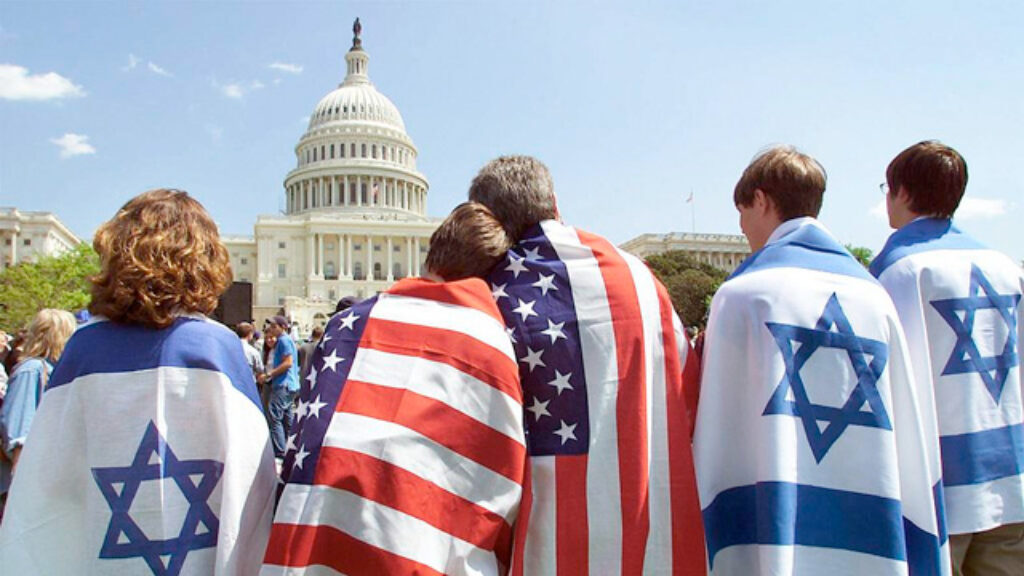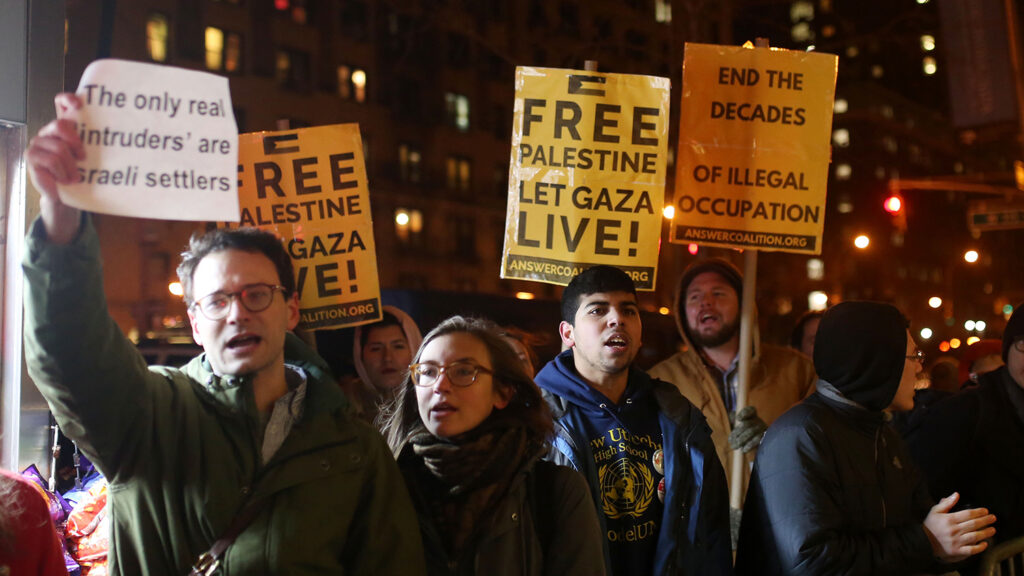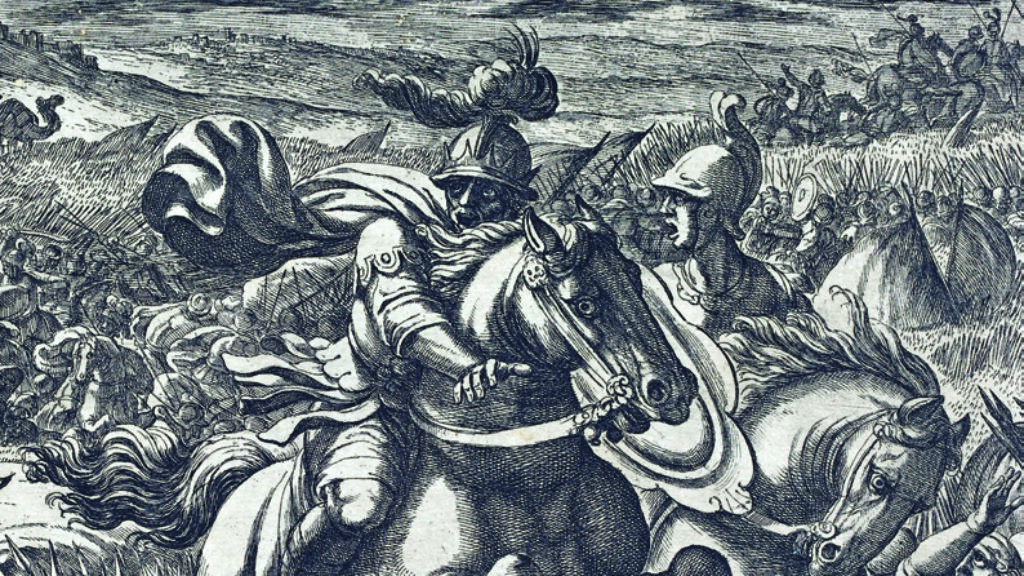The “Neighborhood Bully” Returns
BY EMUNA NAIDITCH
What happens in the Jewish state affects each and every Jew. As poet Yehuda Halevi famously said, “My heart is in the east, but I am at the end of the West.” American Jews contend with a much more defensive form of longing, left feeling distant and helpless in the face of tragedy. Since the October 7 massacre, the American media has been conflicted in its allyship. Some officials continue to stand strong with the state, while others hurl criticisms at Israeli actions. The Israeli government is no stranger to such backlash. Whether it be defending itself from surrounding enemies, operating within punitive guidelines imposed by Western will, or eliminating war criminals in tunnels beneath hospitals, Israel finds itself in impossible positions. While Israel may have sympathy in its hour of mourning, it is granted no such understanding in its attempts to retaliate. This indifference weighs deeply on the heart of the Jewish nation. And this timeless double standard also brings to mind the sarcastic ode of Nobel laureate Bob Dylan to the plight of Israel—the 1983 song “Neighborhood Bully.”
In 1981, Israel destroyed an Iraqi nuclear plant south of Baghdad. The attack, known as Operation Opera, had an undeniable effect on the nuclear atmosphere of the Middle East, pushing nuclear ambitions underground and establishing Israel’s “Begin Doctrine.” However, Israel’s actions came at an international cost, as Iraqi and French officials had previously addressed public concern with assurances that the nuclear plant had peaceful intent. Media coverage demonized Israel, with the Los Angeles Times calling the event “state-sponsored terrorism” and the New York Times deeming it ‘‘short-sighted aggression.” The United Nations General Assembly furiously reprimanded Israel’s actions, and the Jewish state was facing verbal attacks from all sides. Public opinion seemed unanimous in its criticisms of Israel—except for the dry words of one renowned pop culture icon.
Born Robert Zimmerman to Jewish parents in Duluth, Minnesota, Bob Dylan’s early public and artistic image depicted a dry midwestern Christian culture. As he broke into the music scene with his smarmy humanitarian edge and signature raspy voice, the 1960s saw Dylan release such revolutionary classics as “The Times They Are A-Changin,” “Blowin’ In The Wind,” and “A Hard Rain’s A-Gonna Fall”—works deeply infused with themes of protest and social reform. Dylan was known to speak solemnly in support of the underdog. His albums progressively included songs decrying contemporary racial violence and injustice, coming out in staunch support of the civil rights movement. Such songs included “Hurricane,” “Oxford Town,” and “The Lonesome Death of Hattie Carroll.”
Amid these humanitarian anthems, Dylan adapted to electric guitar, stirring controversy in the folk scene and receiving criticism for betraying classic acoustic sounds. Then, in the 1970s, Dylan converted to evangelical Christianity and released three gospel albums in quick succession. This was quite the break from the progressive, new age cultural mood of the time.
On the heels of his gospel era, in 1983 Dylan released the successful album Infidels, a project widely regarded as his return to secular music. From this point on, Dylan remained denominationally ambiguous, describing himself in interviews as religious, yet subscribing to no particular faith, thus re-cementing his persona as a wandering, self-determined troubadour.
“Neighborhood Bully,” the third song on this album, seemed to exude catharsis for the crux of his journey. Fascinatingly, in this secular album, Dylan did not abandon the faith of his fathers. Instead, he addressed his Jewish roots from a spectator’s view, directly referencing Operation Opera in his lyrics. That same year, Dylan traveled for the second time to Israel, and allowed himself to be photographed at the Western Wall donning tefillin. In “Neighborhood Bully,” Dylan, tongue-in-cheek, describes the Jewish state as the gritty underdog amidst a sea of enemies. The song’s narrator, a beleaguered enigma, laments that he is faced with endless persecution, held to an impossible standard, and criticized constantly by the world for simply existing.
The song also highlights the necessity for Israel to act offensively, on account of being surrounded by neighbors who all want it and its people dead. In reality, this “neighborhood bully” makes major contributions in medicine and health, irrigates lifeless land, and creates a paradise. He sees his family torn apart, his holy books trampled, and the world standing by, criticizing every move he makes. After decrying centuries of oppression and expulsion, highlighting Israel’s resistance to major powers such as Rome, Egypt, and Babylonia, Dylan asks a rhetorical question: “What has he done, to wear so many scars?” Finding no satisfying answers, Dylan concludes with the neighborhood bully standing on a hill, running out of time, as history repeats itself.
“Neighborhood Bully” is written in the third person, close but yet distant in classic Dylan fashion. Many fans argue that Bob Dylan’s religious denomination is just a minor piece of the music icon. He has for many decades now avoided affiliation altogether, saying in 1997: “Here’s the thing with me and the religious thing. This is the flat-out truth: I find the religiosity and philosophy in the music.” Known for his prophetic obscurity and ambiguity, the songwriter continues to dodge definition, leaving us an immortal ballad to the Jewish state and its predicament.
Suggested Reading

A New Viewpoint on Diversity
Often, it seems that the people who talk about diversity never visit diverse communities. People seem to think that diversity is based on how one looks. True diversity is not about how someone looks, but how they act.

My Real Internal Conflict is Not One of Clashing Interests
When do my Jewish interests and American interests conflict? After much careful internal deliberation, I have concluded that they do not.

Regaining our Power Through Knowledge: The Solution to Rising Anti-Semitism on Campus
An emotional connection to our Judaism cannot be our only solace. Knowledge is the solution to the problem Jewish students face today.

Jewish Resilience in Times of Persecution and Prosperity, From Our Forefathers to the Present
BY JUDAH MARCUS Resilience is a virtue that has been associated with Judaism for countless generations. Throughout Tanakh, there are a great number of stories about our ancestors demonstrating strength…